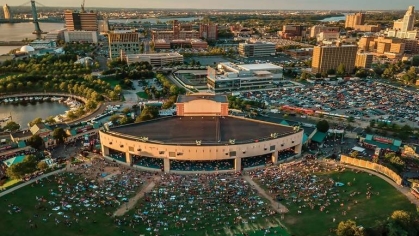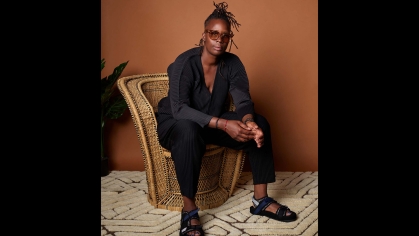Rutgers–Camden Remembers 9/11
Two decades have passed since the tragic events of Sept. 11, 2001. We asked Rutgers University–Camden alumni, faculty, and staff to share their insights on this solemn milestone. They talked about how the attacks changed our nation, what it was like to be a student at the time, or lessons learned since these acts of terror occurred.
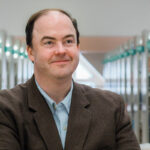
Michael J. Boyle
Michael J. Boyle
Michael J. Boyle, an associate professor of political science at Rutgers–Camden, specializes in research on terrorism, political violence, drones, and American foreign policy. In 2001, he was working toward his doctoral degree in international relations.
What were you doing on Sept. 11, 2001?Where were you when you heard the news about the attacks?
"I was living at home, watching it on TV. I was about to start my Ph.D. at Cambridge University in the United Kingdom and watched the entire attack unfold on TV in real time. Obviously, doing so revealed the true scope of the tragedy, but it also highlighted what would become an important part of the war on terror: its instantaneous nature, as terrorist attacks (and reactions, like the U.S. combat operation in Afghanistan) unfolded in real time. We had a sense of what it was like to experience war virtually in the Persian Gulf War in 1991, but from 9/11 onward, it became a feature of our lives."
How has the world changed because of 9/11?
"There are many markers we can point to that are the legacy of the Sept. 11 attacks and the war on terror. But I think the biggest change has been in the militarization of counterterrorism. During the 'war on terror,' the U.S. tried to fight a war against a tactic and turned the threat of terrorism – not new, and always present – into an existential one that threatens American society. It's hard today to imagine the fear that followed the 9/11 attacks and the expectation that another devastating attack was around the corner. That fear led us to militarize how we deal with terrorism, leading to use of torture and other gross human rights abuses (such as what occurred in Abu Ghraib), but also distorting our discussions of national security in contemporary political life. It also led to the militarization of the U.S. police, the consequences of which we are seeing when protests break out in American cities today."
What lesson have we learned (or what should we learn) following the attacks?
"We should learn from the 9/11 attacks that how you respond to terrorism over the long run matters. There is a danger that the reaction to terrorism leads to the government getting powers (such as surveillance) which it can abuse. Fighting terrorism has to be made consistent with protecting liberty and we need to be careful about standing by and accepting a government slowly and quietly taking those liberties in the name of protecting us. We also need to be distrustful of politicians promising to keep us 'safe' from terrorism, because it is impossible to do so in absolute terms. We need to accept that terrorism is a risk which cannot be eliminated, but rather managed."
For your students who were either not born on 9/11 or were too young then to remember it, what is something from that time that you would want them to know?
"That the world as we know it – militarized, angry, fearful – is not the only one that is possible. That it is a choice to live with the legacy of the war on terror, and one that I hope they choose not to make when their generation takes over."
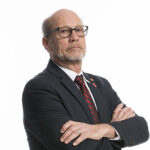
William D. Brown Sr.
William D. Brown Sr.
William D. Brown Sr. CCAS'81 served in the U.S. Air Force from 1972 to 1976 and is president of the group Veteran Alumni of Rutgers University. On 9/11, he was at work when he first heard about the attacks on the Twin Towers in New York.
What were you doing on Sept. 11, 2001? Where were you when you heard the news about the attacks?
"I was in Trenton conducting interviews for an accounting position when my administrative assistant rushed in the office, alerting us of the attacks. The candidate, hearing the news, ended the interview because his wife worked in one of the towers. I later learned that she was OK and was not in her office at the time of the attack."
What are some things that gave you comfort during that time?
"I needed to do something, so I did receive some comfort when my request to help staff New Jersey's crisis hotline at Liberty Park was approved."
Many college students today were either not born on 9/11 or were too young then to remember it. What is something about that time that you would want these students to know?
"Our way of life, 'freedom,' is premised on the democratic principles stated in our Constitution. Many in our nation tend to take these rights for granted. This is a grave mistake. They can be taken. Our way of life will always be challenged and will always need to be defended. The price of our freedom is high and often paid in blood and other hardships visited on our young soldiers and their families. Your right to vote will never be free, so for the sake of our nation and in honor of those who paid the ultimate price, use it, and use it after much thought."
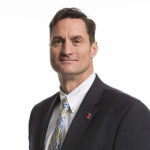
William D. Brown Jr.
William D. Brown Jr.
William Dennis Brown Jr. CCAS'11, RLAW'14 served eight years and three overseas deployments as a Navy SEAL. He went on to earn degrees in political science and law at Rutgers–Camden, and formed a student-veteran group on campus.
What were you doing on Sept. 11, 2001? Where were you when you heard the news about the attacks?
"I was at SEAL at SEAL Team 8 in Little Creek, Va., taking a course about communicating blueprints of floor plans via radio transmission, when the first plane crashed into the north tower of the World Trade Center. Back then, guys had pagers, and all of a sudden a lot of the SEALs' pagers started going off at once. We knew at once our lives were going to change."
What are some things that gave you comfort during that time?
"I was comforted by the fact that I may have the opportunity to hold those responsible for the attacks accountable."
What was the campus community like in the days and weeks that followed 9/11?
"I was a SEAL during 9/11 and do not know what the campus community was like. I do know that when I came to Rutgers, I founded the first student group for veteran students, Veterans for Education, and then also founded the first scholarship for veteran students, the Veterans for Education and Jeremy Kane Endowed Scholarship."
Many college students today were either not born on 9/11 or were too young then to remember it. What is something about that time that you would want these students to know?
"My lesson to college students today who were either not born on 9/11 or were too young then to remember would be to know that our nation needs brave men and women in the military and law enforcement to step up when things get ugly."
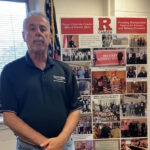
Fred Davis
Fred Davis
Fred Davis, director of the Office of Military and Veterans Affairs at Rutgers–Camden, served for six years with the United States Navy (Aircrew).
What were you doing on Sept. 11, 2001? Where were you when you heard the news about the attacks?
"I was working with the Camden Police Department at the time; however, I was on loan with the U.S. Drug Enforcement Agency (DEA) as a task force supervisor. I was attending a seminar in Philadelphia hosted by the Bureau of Alcohol, Tobacco, Firearms, and Explosives (ATF) about regulating the traffic of illegal weapons."
What are some things that gave you comfort during that time?
"The thoughts that brought me comfort were that I knew my family was safe, and that I knew our military and police officers would respond in the best possible manner to address the threat to our nation."
How has the world changed because of 9/11?
"It changed in a way that increased observation and alertness to any security irregularities in our daily lives."
Many college students today were either not born on 9/11 or were too young then to remember it. What is something about that time that you would want these students to know?
"I feel that those who survived that time should pass on to the younger generation that we will remain vigilant to terrorism and know that our military and police will always be in the ready and prepared to rise up to any terror threats to come our way."
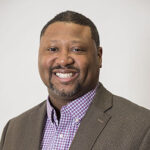
Oscar Holmes IV
Oscar Holmes IV
Oscar Holmes IV is the associate dean of undergraduate programs and an associate professor of management at the Rutgers School of Business–Camden. In 2001, he was an undergraduate student studying psychology, human resource management, and Spanish.
What were you doing on Sept. 11, 2001? Where were you when you heard the news about the attacks?
"I remember vividly where I was when I learned of the horrific attacks on Sept. 11. I had been communicating with one of the few African American professors, Dr. Micah McCreary, in the psychology program at my undergraduate institution and we finally arranged a time to meet in person on Sept. 11. (Dr. McCreary is now president of New Brunswick Theological Seminary and we are still friends to this day.) I was in his office and we were having a great conversation, getting to know each other, when a colleague came to his door frantically explaining that there had been some attack in New York. We rushed to a nearby TV to turn on the news and saw the horrific replays and the ensuing chaos. Dr. McCreary was also a pastor of a Baptist church that I later joined as a member. After comprehending what was happening, Dr. McCreary did what any great pastor would do in that moment and prayed."
How has the world changed because of 9/11?
"Clearly, air travel changed as a result of 9/11, as well as the subsequent wars that were started post-9/11. Unfortunately, terrorism, ethnocentrism, ethnic profiling, and xenophobia have increased since 9/11 as well."
What lesson have we learned (or what should we learn) following the attacks?
"I think one of the lessons that we should have learned following the attacks is just how pernicious colonialism, widespread global inequality, reckless foreign policy, and imperial domination are to our society, and that we must work diligently to rectify these grand challenges."
For your students who were either not born on 9/11 or were too young then to remember it, what is something from that time that you would want them to know?
"9/11 was a traumatic day and is still a traumatic memory for many people. As such, I would simply want younger people to learn the full history of what occurred so that they can be part of an informed citizenry to help work toward creating a world, supporting causes, and voting for people to help us rectify the grand challenges that I mentioned earlier, to help decrease the chances of any country experiencing a 9/11 again."
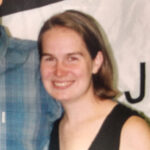
Christine Evans Hribar
Christine Evans Hribar
Christine Evans Hribar CCAS'03 was a double-major in English and religion/philosophy, and was a member of the Gleaner staff while studying at Rutgers–Camden. She was in the Paul Robeson Library when she heard the news.
"I almost reached the seminar room on the second floor of the library when someone said that all classes were cancelled for the day, that a plane had flown into the World Trade Center. Students around me wondered if it was an attack on capitalism. We wondered if it was real. The crowd changed direction, heading to the large television in the Campus Center. A crowd had already gathered around and as we watched the towers smoke, people started to realize that the specks onscreen were people jumping. I turned away.
I took the train home and hours later mountain biked along a woodland trail with another student. The sun dappled the trail, the bugs hummed. The pastoral sounds emerged unblighted by air traffic. I felt lighthearted until my friend reminded me that this wasn't a holiday. His sister studied design in Manhattan. I had no immediate ties in New York, but over the following days, I realized how the students, staff, and faculty were threaded to the city: friends, family, relatives with unknown whereabouts or first-person stories. With news cycles moving so quickly, I've always had difficulty knowing which moments are the ones that change a lifetime, or a generation, or will start a war that lasts 20 years. For my parents, it was JFK's assassination. For me, the first was Sept. 11, 2001."
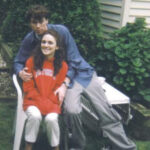
Laura Miles Krisch
Laura Miles Krisch
Laura Miles Krisch CCAS'03 majored in psychology at Rutgers–Camden.
What were you doing on Sept. 11, 2001? Where were you when you heard the news about the attacks?
"I was in Professor Walker's theater class and we were watching a movie. The Theater Department receptionist came in and announced that everyone must go home, as there had been an attack on the World Trade Center. I left class in a foggy state of disbelief with my friend Rachel, who I knew since childhood. We met up with some friends at the Honors College lounge to put the pieces of what information we all had together. (What else do you do when they tell you to go home?) Rachel, Steve (my eventual boyfriend and now husband), and I took the long PATCO packed train to our South Jersey stops. That was a surreal and terrifying ride home."
What are some things that gave you comfort during that time?
In that immediate moment (as was our way), we assured ourselves we were safe because Camden was not on a terrorist (or an American's) radar. I grew up in a very 'If you don't laugh, you're going to cry' environment, and it was our best to attempt to distract ourselves from the reality of what was occurring. We all were scared to death on that packed car, however, that the Ben Franklin Bridge could blow at any time."
Many college students today were either not born on 9/11 or were too young then to remember it. What is something about that time that you would want these students to know?
"The days after 9/11 were a camaraderie that I have not experienced before or since (everyone backed the president whether they voted for him or not... flags were everywhere). It was not limited to campus, but even my toughest professor created an atmosphere to reach out... feeling very old saying this, but I was definitely not used to this openness around support, so it was a very appreciated gesture acknowledging this collective grief.
The country felt pulled together, but honestly, was it because we didn't have access to everyone's opinions and thoughts at any moment, all of the time? This was before Facebook, Instagram, and Twitter. I feel like time passes, but nothing really changes if we are making real comparisons. I speculate that if Sept. 11 occurred with the constant access to an immediate platform that we all have in our hands today, we would not have felt the same sense of community, even if we were displaying the same empathy and actions in our responses."
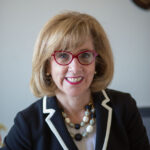
Donna Nickitas
Donna Nickitas
Donna Nickitas is the dean and a professor at the Rutgers School of Nursing–Camden. She served in the United States Air Force Nurse Corps from 1976 until 1992, when she retired as a major.
What were you doing on Sept. 11, 2001? Where were you when you heard the news about the attacks?
"I was chairing a board meeting for the Women's Development Corporation in Stamford, Conn., when the first plane hit the Twin Towers in New York City. A staff member alerted the board members and we quickly went to view the news about the attack on a television station that was covering the event as it unfolded. We stood silently and witnessed the terror in front of us."
How has the world changed because of 9/11?
"The world has changed in so many ways for all of us. In the last 20 years, the threats of terrorism, domestic and international, are daily occurrences. These threats challenge our democracy and freedoms that cannot be taken for granted, including our right to vote and to live free of autocratic rule and governance."
What lesson have we learned (or what should we learn) following the attacks?
"The lessons we have learned are to cherish democracy, be grateful to all those who volunteer for military service to protect and uphold our democratic principles, and of course, to remember the price paid by those who have given their lives so that the rest of us can experience peace and freedom."
For your students who were either not born on 9/11 or were too young then to remember it, what is something from that time that you would want them to know?
"I would like those who were too young or not born yet to remember those whose lives were either lost directly as a result of the 9/11 attack, as well as all the first responders whose lives were lost in direct service to rescue and recover. These were citizens and residents who were killed on 9/11, and were everyday citizens and residents going about their daily lives who did not return home that evening. Those who died on 9/11 will never be forgotten, as well as the over 2,000 service members who lost their lives during the past 20 years fighting the wars in Iraq and Afghanistan. Those who were too young or not born yet must learn the lessons of living in civic society, the principles of democracy, and the history of 9/11."
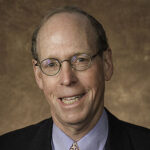
Rayman Solomon
Rayman Solomon is a University Professor and dean emeritus of Rutgers Law School in Camden. He is also a Vietnam veteran who served in the U.S. Navy from 1968 to 1970.
What were you doing on Sept. 11, 2001? Where were you when you heard the news about the attacks?
"I first heard the news of a plane hitting the first tower when I was getting ready to leave for school. I went to the office and listened to the news as I drove in. I saw the towers fall with a group of faculty, staff, and students on a small TV in the administrative assistant's office. The law school and the campus were immediately evacuated. I believe I was the last to leave the building – it was about 1 p.m. As people have commented, I don't believe that there has ever been a bluer or more cloudless sky."
How has the world changed because of 9/11?
"The most obvious change is the enhancement of security – especially at airports. However, our need to fight terrorism has in many ways distorted our sense of privacy and even justice (for example, incarcerations at Guantanamo). It has also further enhanced the power of the Executive Branch and led to increased military expenditures."
What lesson have we learned (or what should we learn) following the attacks?
"We cannot let the need to fight terrorism lead us into nation-building and an endless war in other countries."
For your students who were either not born on 9/11 or were too young then to remember it, what is something from that time that you would want them to know?
"There was a time, for a brief moment, when political divisions did not disappear but were muted. People looked to help each other and genuinely were grateful for the bravery of the passengers on Flight 93, the firefighters and police in New York and Washington, and the many people who risked and sometimes lost their lives trying to help others escape the falling towers. The site of the new law school building was a parking lot on 9/11 and was owned by Al DeMartini. His brother, Frank, was a building architect at the World Trade Center and died after he returned several times into the burning building, leading numerous people out to safety."
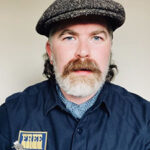
Patrick Wallace
Patrick Wallace
Patrick Wallace is the associate director of the Campus Center and Student Involvement and a longtime member of the Rutgers–Camden community – in 2001, he was an Honors College student (Class of 2002).
What were you doing on Sept. 11, 2001? Where were you when you heard the news about the attacks?
"It was the beginning of the fall semester of my senior year at Rutgers–Camden. I remember being on campus and getting a breakfast sandwich from a food truck that used to be parked near the School of Law (we all called it Louie's since the owner/chef/operator was named Louie) when a friend came up to me and said, 'We're being attacked.' I couldn't really grasp what he was talking about. And then again he said, 'We're being attacked. The country is being attacked. We're going to war.'"
How has the world changed because of 9/11?
"It's honestly a little difficult for me to remember what the world was like prior to 9/11. I think our ideas as a nation regarding security and privacy and global threats have changed, and have impacted many of the daily aspects of our lives. I would imagine the biggest change in general since 9/11 has to be the speed with which news and communication travels; in 2001, I didn't even have a cell phone. I remember speaking with friends and family members who all shared stories of trying to get in touch with loved ones from New York and just how difficult it was during that time."
Many college students today were either not born on 9/11 or were too young then to remember it. What is something about that time that you would want these students to know?
"Similar to this moment, it was a time filled with a mixture of uncertainty and anxiety and nervousness. It was a time that seemed to have more questions than answers. And a time that seemed like it would last forever. But here I am, 20 years later. Still with many questions, but still here."

